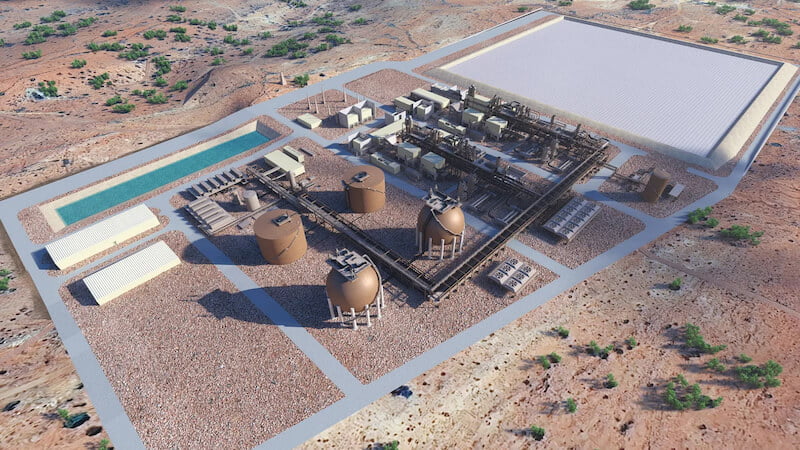
The Canadian company Hydrostor is currently working on a compressed air battery that will store energy using compressed air and make it available again later.
Energy storage systems are likely to become even more relevant in the coming years. Millions of solar systems around the world then generate electricity during the day, which energy companies have to reserve for the night. In this context, various technologies have already emerged, such as a battery made of bricks or CO2.
Toronto-based Hydrostor is now taking a different approach. It is working on developing an energy storage system that will store energy underground in the form of compressed air. The company sees the technology as a possible solution to close energy gaps.
Compressed air battery stores energy in cavities
If renewable energy sources such as wind and solar cannot meet demand, the battery will step in. Hydrostor is initially planning large plants in Australia and California, each of which can supply electricity for up to eight hours or longer. The system uses compressed air that pipes lead into underground cavities. A large compressor is used, which the people in charge ideally run on renewable energy.
The pressure creates heat, which extracts a fraction of the air and stores it above ground. This will then be available at a later date. To release the energy, the system pumps water into the cavities. This pushes the air upwards, where it mixes with stored heat and flows through a turbine to generate electricity.
First official plant to start operations in 2027
Hydrostor's first major project is the Silver City Energy Storage Centre in Australia. This will be able to supply 200 megawatts for up to eight hours. Construction is set to begin this year. The plant is scheduled to be commissioned in mid-2027. Another planned project is the Willow Rock Energy Storage Centre in California. It has a capacity of 500 megawatts and also runs for eight hours.
Hydrostor has already tested its technology in a smaller facility in Goderich, Ontario. On a small scale, this enables the storage of around 1.75 megawatts over around six hours. The system serves as evidence of the potential of the technology. The company advertises a competitive alternative to other long-term storage solutions (such as pumped storage power plants).
Also interesting:
Source: https://www.basicthinking.de/blog/2024/05/22/batterie-komprimierte-luft/


